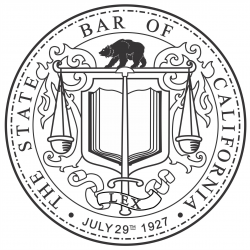-
Job Description
Job Description
Office of Information Technology
Annual Salary Range: $123,747 - $164,976
FLSA Exempt / Non-Union Represented
This position allows for up to four days of remote work per week
About the Office
The Office of Information Technology (IT) is responsible for enabling the State Bar's internal and external stakeholders through the management, implementation, and maintenance of technology systems that support the State Bar's mission and goals. IT builds and maintains functional capabilities, supports innovation, and ensures systems operate smoothly, efficiently, and securely across the enterprise.
About the Division
The IT Operations & Security division within the Office of Information Technology manages the State Bar's core technology environment, including infrastructure, end-user support, and cybersecurity. The division ensures that systems remain secure, reliable, and accessible so staff can work effectively and the public can access essential State Bar services. These functions form the technological backbone of mission-critical operations across the organization.
Within this division, the Infrastructure Team supports and maintains the State Bar's foundational technology components, including servers, networks, cloud platforms, storage, Office 365 applications, identity and access management services, telephony, disaster recovery systems, and the monitoring tools that ensure the performance and availability of enterprise systems. The team operates a hybrid environment spanning Azure cloud services, on-premises data centers in Los Angeles and San Francisco, and multiple enterprise platforms including Salesforce, Oracle, Odyssey, and the AS/400.
Job Summary
The Infrastructure and Cloud Manager provides leadership and hands-on technical expertise for the State Bar's hybrid cloud and on-premises infrastructure. This position oversees day-to-day operations and ensures timely resolution of issues including system outages, connectivity problems, performance degradation, backup failures, and other infrastructure incidents.
The manager supports a team of technical specialists and provides the cross-domain knowledge necessary for escalation, technical coordination, and maintaining continuity of critical infrastructure services. The role also manages contractors and service providers to ensure essential infrastructure services are maintained.
This role is responsible for maintaining stable operations, minimizing risk, and guiding improvements to infrastructure services that support business systems and enterprise platforms. The manager also provides leadership for infrastructure-dependent business and IT projects requiring cloud resource provisioning, system integrations, network planning, and performance tuning.
The Ideal Candidate
The ideal candidate brings broad experience across hybrid cloud and on-premises infrastructure and is comfortable operating in a complex enterprise environment that spans multiple platforms and locations. They have practical expertise in Azure administration, Microsoft 365, identity services, networking, server administration, storage, and performance tuning, with strong analytical and troubleshooting skills.
They excel in coordinating cross-domain activities, supporting a team of subject matter experts, and managing vendor resources. They communicate effectively, work independently, take ownership of ensuring stable and dependable technology services for the State Bar's staff and the public, and serve as a hands-on manager.
Examples of Essential Duties- Manage and administer hybrid infrastructure systems including cloud platforms, virtualization, storage, backup, and monitoring tools.
- Oversee server administration including configuration, patching, performance monitoring, system tuning, and lifecycle management.
- Direct network infrastructure operations including routing, switching, wireless, DNS, VPN, load balancing, firewalls, and traffic routing.
- Oversee the design, operation, and validation of enterprise backup and recovery solutions across on-premises and cloud environments.
- Manage enterprise telephony, audio-visual systems, and communication platforms.
- Propose and maintain operational and functional standards, practices, policies, and procedures.
- Ensure secure and reliable administration of Microsoft 365 services including Exchange Online, SharePoint, OneDrive, and Teams.
- Oversee identity and access management including Active Directory, Entra ID, provisioning, and group policy configuration.
- Monitor system health, alerts, performance, and capacity; lead incident response and conduct root-cause analysis.
- Maintain and administer monitoring, alerting, logging, and infrastructure reporting tools.
- Perform infrastructure reviews, identify risks, and implement improvements to support operational stability and security.
- Support and coordinate infrastructure components of business and IT projects.
- Develop and maintain IT documentation, diagrams, standards, procedures, and runbooks.
- Oversee vendor management, contracts, SLAs, and procurement activities.
- Evaluate and recommend tools and technologies that support infrastructure modernization and scalability.
- Develop lifecycle management strategies for cloud resources, servers, network components, storage, and telephony.
- Provide technical escalation support across all infrastructure domains.
- Collaborate with Cybersecurity on vulnerability remediation, audits, and incident investigation.
- Lead and coordinate change management processes for infrastructure services.
- Provide guidance, coaching, and technical direction to staff.
- Ensure staff have the tools, training, and development for continuous growth.
Knowledge of:- IT infrastructure technologies including servers, networks, cloud platforms, storage, Microsoft 365 services, identity and access management, telephony, monitoring, and automation tools.
- Hybrid cloud architecture, Azure administration, resource governance, networking, and cost optimization.
- Enterprise system performance monitoring, alerting, troubleshooting methodologies, and root-cause analysis.
- Backup, disaster recovery, business continuity, high-availability strategies, and incident response.
- Administrative and managerial principles including strategic planning, policy development, project management, budgeting, supervision, and conflict resolution.
- Methods for preparing technical reports, administrative documents, and operational procedures.
- Use of modern productivity tools, project management platforms, and communication technologies.
- Principles and practices of customer service and vendor management.
- Security, compliance, and operational standards applicable to enterprise infrastructure.
- Best practices for IT operations, configuration governance, and change management.
- Principles of systems and process analysis, design, and performance measurement.
- Advanced principles of information technology and data communications.
- Project management methodologies including scheduling, critical path identification, and delegation.
Ability to:- Provide leadership, direction, and oversight for infrastructure operations and cloud services.
- Develop and implement goals, objectives, policies, procedures, and operational standards.
- Analyze business, operational, and technical needs to design scalable infrastructure solutions.
- Organize and prioritize work, develop effective plans, manage deadlines, and exercise sound judgment.
- Select, supervise, and develop technical staff.
- Adapt to changing priorities, environments, and operational demands.
- Facilitate consensus and resolve complex issues collaboratively.
- Collaborate with cross functional teams.
- Communicate technical and operational information clearly and persuasively.
- Maintain confidentiality and uphold ethical and professional standards.
- Ensure compliance with IT policies, practices, and regulatory requirements.
- Research and evaluate best practices and emerging technologies.
- Coordinate and administer technology projects from initiation to completion.
- Gather and evaluate information to draw logical conclusions and take action.
Minimum Qualifications
Education- Bachelor's degree in information technology, computer science, engineering, or related field, or equivalent academic achievement.
Experience- Five years of full-time experience in IT infrastructure operations or cloud services, including three years of supervisory or team-lead experience.
Desirable Certifications- Azure Solutions Architect Expert, Microsoft 365 Administrator, VMware certification, ITIL v4 Foundation, CCNP, CRISC, CCS, CISM (optional).
About the State Bar
The State Bar of California's mission is to protect the public and includes the primary functions of licensing, regulation, and discipline of attorneys; the advancement of the ethical and competent practice of law; and support of efforts for greater access to, and inclusion in, the legal system.
Our Values
Clarity | Investing in Our People | Excellence | Respect | Growth Mindset
Learn more about our values.
DEI Statement
We are a diverse, equitable, and inclusive workplace where all of our employees and prospective employees experience fairness, dignity, and respect.
Learn more about our commitment to DEI. -
ABOUT THE COMPANY
-

-
The State Bar of California
Show moreThe State Bar's mission is to protect the public and includes the primary functions of licensing, regulation and discipline of attorneys; the advancement of the ethical and competent practice of law; and support of efforts for greater access to, and inclusion in, the legal system.
Are you looking for a public service career that can make a difference?
A career with the State Bar will enable you to contribute to our vital mission of public protection. The State Bar is a regulatory agency that protects the people of California through oversight of the legal profession. Our mission also includes increasing access to legal services and furthering diversity and inclusion in the legal profession.
The State Bar offers challenging and rewarding careers requiring a broad range of skills and abilities. We offer competitive compensation, comprehensive benefits, and opportunities for growth and development, as well as an environment that encourages work-life balance.
Apply today for a career where your work can have meaningful impact!
-
